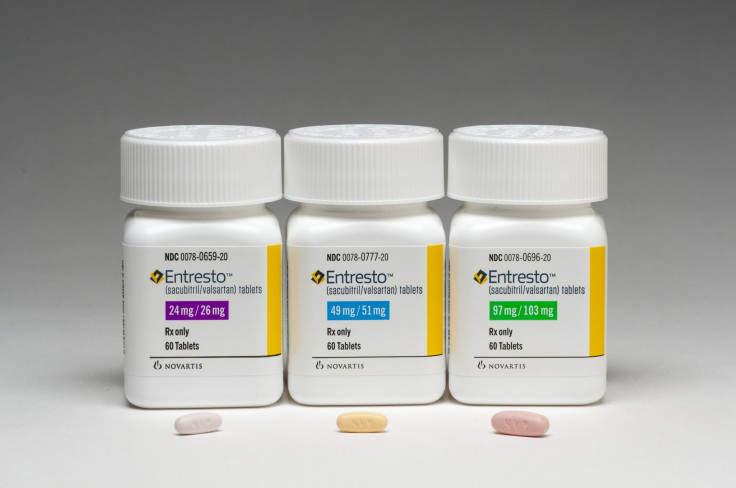Novartis Earns FDA Approval For New $5B 'Blockbuster' Drug For Heart Failure, Entresto, And Reveals $12.50-A-Day Price

Novartis Pharmaceuticals’ new heart failure drug Entresto, which is projected to reap $5 billion in sales, earned FDA approval Tuesday – six weeks before the agency's priority review action date when the decision was expected. The drug has been hyped as a “multi-blockbuster” by Novartis Chief Executive Officer Joe Jimenez and hailed as a “mega-brand” by Timothy Anderson, senior analyst at the investment research firm Sanford C. Bernstein, reports FiercePharma.
Amid the fanfare, Novartis announced the drug’s price and confirmed negotiations are underway for a unique pricing plan intended to put price-sensitive patients and insurers at ease while still earning the company hefty returns.
Entresto treats patients with heart failure who have low or irregular heartbeats characterized as reduced ejection fraction, which limits their physical activity as defined by the New York Heart Association's standards. This particular form of heart failure affects about 2.2 million Americans, according to the company.
The new drug reduced patients' risk of death from cardiovascular issues by 20 percent compared with those who were given a generic drug known as enalapril in what David Epstein, division head for Novartis, called the “world’s largest heart failure trial,” featuring 8,442 patients.
Entresto will be sold at a wholesale price of $12.50 per day, which does not include discounts negotiated between drug companies and private insurers, the federal government and hospitals. Insured patients will likely pay far less, but the full cost for uninsured patients will be about $4,500 per year.
By comparison, enalapril costs just $9.05 for a 30-day supply at Walmart, or $108 a year. That difference will be absorbed by some patients, insurers and government health programs -- such as Medicare and Medicare -- that could potentially underwrite the drug for hundreds of thousands of people.
Julie Masow, a media relations officer at Novartis, correctly pointed out in an email that Entresto’s wholesale price is still far below the shockingly high prices of other life-saving treatments that have recently debuted, such as Harvoni for hepatitis C which costs $94,500 for a 12-week treatment and Blincyto for leukemia which fetches $178,000 for two courses of treatment. The companies behind those drugs received pushback from patients, legislators and insurers for demanding such high prices.
That backlash inspired Novartis to pursue an unorthodox pricing plan for Entresto, as Reuters reported in June. The company’s proposal features discounts for the medicine to insurers followed by bonuses or price raises for Novartis over the long-term if the medicine reduces the number of hospitalizations for patients. In trials, patients who took Entresto reported 21 percent fewer hospitalizations than those who took enalapril. If Novartis can replicate these results in real life, it could wind up saving insurers a lot of money.
“We are beginning to share the risk,” Epstein told Reuters. Through this arrangement, the company would also receive a cut of those cost reductions.
So far, however, Masow says the company has no concrete plans for such a system.
“We have reached out to a few U.S. payers to discuss potential pricing models linked to clinical outcomes, including a reduction in heart failure hospitalizations,” she says. “While discussions have been encouraging, we’re in the early stages and it is too early to share specifics.”
In the meantime, Epstein said in a statement that Entresto will begin shipping in the U.S. in the coming week.
© Copyright IBTimes 2025. All rights reserved.






















